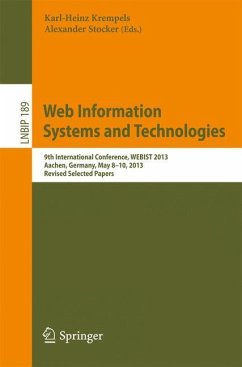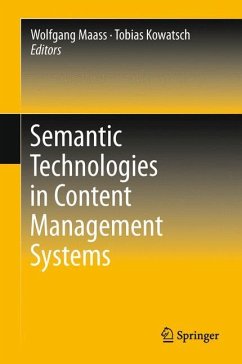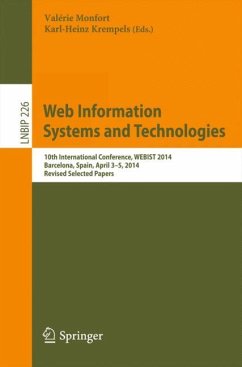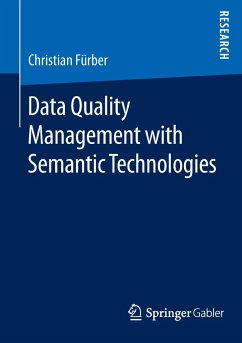
Semantic Technologies for E-Government
Versandkostenfrei!
Versandfertig in 6-10 Tagen
76,99 €
inkl. MwSt.

PAYBACK Punkte
38 °P sammeln!
E-government faces huge challenges in achieving interoperability and integration, taking into account differences in laws, regulations, services, administrative processes and languages across regions and countries. On the other hand, issues like service, data and process integration have been researched by the Semantic Web community for several years now, and in the last two to three years we have witnessed the first applications of semantic technologies in real, operational e-government systems in both Europe and the US which address exactly these challenges.With this book, the editors presen...
E-government faces huge challenges in achieving interoperability and integration, taking into account differences in laws, regulations, services, administrative processes and languages across regions and countries. On the other hand, issues like service, data and process integration have been researched by the Semantic Web community for several years now, and in the last two to three years we have witnessed the first applications of semantic technologies in real, operational e-government systems in both Europe and the US which address exactly these challenges.
With this book, the editors present the latest research results on how to use semantic technologies in order to improve or even revolutionize the use of ICT in public administration systems. The contributions are organized into three parts: architectures and process integration, ontologies and interoperability, and portals and user interactions. They give a broad overview of how semantic technologies have been applied in different e-government projects funded from the European program for ICT Research and Development, and they cover a wide spectrum of semantic technologies such as development of domain and service ontologies, semantic enhancements of business process models, semantic Service-Oriented Architectures (SOAs) based on Semantic Web Services (SWS) frameworks, and ontology-based knowledge management.
In this volume, researchers of Semantic Web technologies will find a wealth of challenging real-world scenarios to stimulate new fields of research, while developers of e-government systems as well as other stakeholders in public administration will appreciate the detailed presentations and discussions of numerous applications in areas such as e-government portals, personalization of Web-based public services, or integration and orchestration of public administration processes.
With this book, the editors present the latest research results on how to use semantic technologies in order to improve or even revolutionize the use of ICT in public administration systems. The contributions are organized into three parts: architectures and process integration, ontologies and interoperability, and portals and user interactions. They give a broad overview of how semantic technologies have been applied in different e-government projects funded from the European program for ICT Research and Development, and they cover a wide spectrum of semantic technologies such as development of domain and service ontologies, semantic enhancements of business process models, semantic Service-Oriented Architectures (SOAs) based on Semantic Web Services (SWS) frameworks, and ontology-based knowledge management.
In this volume, researchers of Semantic Web technologies will find a wealth of challenging real-world scenarios to stimulate new fields of research, while developers of e-government systems as well as other stakeholders in public administration will appreciate the detailed presentations and discussions of numerous applications in areas such as e-government portals, personalization of Web-based public services, or integration and orchestration of public administration processes.












